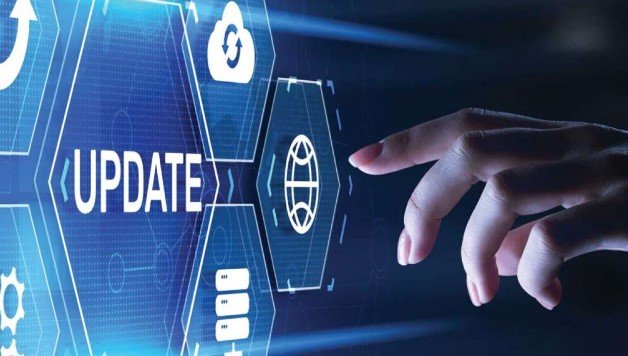
Understanding the Risks of Voice Cloning in the Age of AI
Speeds of developing AI-based technologies are moving at breakneck paces, both blessed with unmatched benefits and alarming risks. It is one of the most risky developments: AI voice cloning– the ability to replicate a human’s voice in uncannily accurate ways. No doubt this innovation has legitimate applications as a method to better accommodate and serve customers it has opened a Pandora’s box full of ethical, legal, and societal challenges. This makes the risks of AI voice cloning paramount for lawmakers because this threat compromises trust, threatens national security, and vitiates people’s confidence in democratic institutions.
The Mechanics of AI Voice Cloning
AI voice cloning relied on machine learning that would deconstruct the patterns of anyone’s voice and then replicate them. That can carry tone, pitch, and even style remarkably well, creating a cloned voice almost indistinguishable from the original one, given just a few minutes of an audio recording. Tools like VALL-E and others made it even more accessible and expensive for more wrongful use. The ability of such technology to produce seemingly real and convincing audio has great political implications, especially in the arena of politics for lawmakers.
A Threat to Trust and Integrity
To politicians, their voices can be as eloquent as their writing or declarations in public. It is a means whereby authority is disseminated, with the formation of public opinion, and when reconnecting with the constituents. AI voice cloning causes breaches within this dynamic by making fake recordings that misrepresent words from lawmakers.
A senatorial endorsement of some inflammatory remarks or controversial legislation by some audio clip can surface; even when later proven fake, the damage to reputation and credibility is irreparable.
In many places around the world, public trust in government officials has already been undermined. What will further polarize politics and undermine confidence in democratic processes is the manipulated voice recording. A manipulated recording of a legislative member speaking derogatorily about an identifiable community may unleash riots to further destabilize already volatile political climates.
National Security Risks
Such methods also seriously threaten national security because voice cloning not only can substantially infiltrate a person’s life but also exposes every secret to the risk of social engineering attacks, where one might portray him as an official in communication and use such information to obtain classified details or direct government resources for malicious use.
For instance, it could give a cloned voice instructing the security officials to withdraw at the opportune moment or even determine control of the financial markets by generating fake orders. The aftermath would be disastrous; not only for the individual lawmakers but also for the very fabric that knits together the governance and economy of a nation.
Exploitation by Cybercriminals
Apart from national security, voice cloning is a lifeline for cybercriminals. It has been highly applied in fraud and extortion operations where the perpetrator clones the voice of a lawmaker to seek funds or sensitive information. Such scams are tricky since they apply the implanted trust in a well-known voice.
For example, a hacker could clone the voice of a congressperson and mislead their staff into giving out classified data. In a way, impersonating a lawmaker’s voice in public addresses or interviews could further escalate the dissemination of misinformation, complicating the work of governing bodies.
Legal and Ethical Dilemmas
This is still an infant technology, and thus very difficult to speak about the numerous ethical dilemmas and accountability the same raises. The law that would apply here regarding defamation, impersonation, and cybersecurity can be woefully wanting in its application to AI-generated content. This lack of clarity creates an environment for bad actors to operate comparatively relativistically within a lawless manner.
Moral questions over consent and privacy barely get vented here. Shouldn’t the identity of a lawmaker be safe if their voice can so easily be cloned from public recordings? Do firms offering AI-based services for voice cloning bear some responsibility for the misuse of it? It’s a set of questions policymakers must attend to now.
The Ripple Effect on Democracy
The effects of AI voice cloning go even beyond individual politicians because false audio recordings can be used to undermine elections by spreading false stories about candidates or parties. Imagine, for instance, that a manipulated recording emerged days before an election in which a candidate confessed to corruption. Even if it was later proved to be fake, the timing might be irrevocable regarding public perception and voting.
Voice cloning is not the first to use AI to affect political speech, but it does it in a new dimension; while it serves to bring down an emotive message because it goes about under the guise of a credible voice, it also spreads viral misinformation; and thus, it is fast becoming a potent tool for undermining democracy.
How Lawmakers Can Protect Themselves
Given the increasing threat, lawmakers need to act preventively against the wrong use of AI voice cloning. For instance, the legislature can implement more stringent regulations surrounding voice cloning applications and their development. In that regard, the placement of watermarks in AI-generated content or visibly declared to be of an artificial origin would be particularly useful for intervention.
Another critical step is improving awareness and education. Lawmakers and their teams should be trained to recognize potential threats and implement robust security protocols to protect sensitive information. Collaborating with cybersecurity experts can also help identify vulnerabilities and strengthen defenses against voice cloning attacks.
The Role of AI Regulation
This danger of AI voice cloning should be curbed by the governments of the world by encouraging the formation of proper regulations for AI. These regulations must have regulations on what is ethical and what is unethical usage and terms of punishment in case of misuse along with mechanisms to authenticate audio recordings. International cooperation is an important requirement since internet services transcend boundaries, and malicious actors can operate under weak jurisdictions.
Moreover, investment in research to detect and counter the faked audio is essential, because by creating more advanced tools for identifying AI-generated content, law enforcement agencies and organizations can get ahead of cybercriminals.
Conclusion
AI voice cloning is the kind of double-edged sword with incredible possibilities creating huge risks to lawmakers themselves. Possible misuse could go against public trust, national security, and democratic processes as a whole. In this regard, government, technologists, and society have to work together on the myriad ways that robust safeguards can develop as technology changes.
It will first and foremost be a battle for the lawmakers to understand how dangerous this is and advocate effectively for regulations that make sense. Defending them, in a sense, is also protecting their interest in the system of transparency and trust that underpins democracy.






